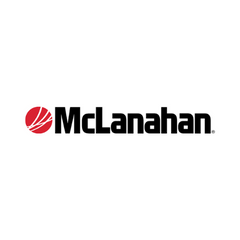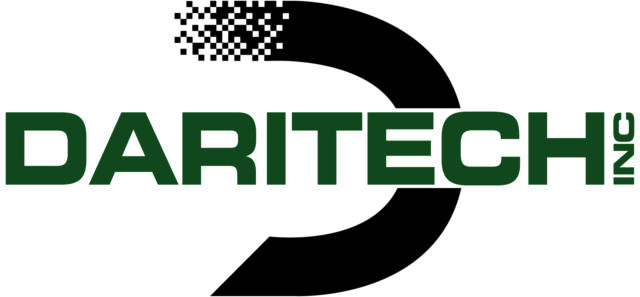The Accelerating Livestock Innovations for Sustainability (ALIS) program was developed at Cornell University to expedite the development, approval, and adoption of safe and effective technologies that help farmers optimize their production system while protecting our environment.
A priority of the ALIS program is to reduce emissions of methane, a potent greenhouse gas, from livestock agriculture. The initiative has spearheaded numerous investments in faculty, staff, facilities, and equipment to support the organization and action of strategic teams that aim to solve long-standing challenges faced by livestock agriculture.
In reflection of this support, the Department of Animal Science unveiled a state-of-the-art Animal Respiration Chamber facility to much anticipation and demand. The Animal Respiration Chamber facility was created with $2 million in support from Cargill, Genessee Valley Regional Market Authority, Balchem Corporation, New York State Department of Agriculture and Markets, Cornell College of Agriculture and Life Sciences and Department of Animal Science, and the Cornell Atkinson Center for Sustainability.
The Animal Respiration Chamber facility, located with the Large Animal Research and Teaching Unit in Ithaca, N.Y., is composed of four individual, climate-controlled animal respiration chambers made of stainless steel with glass windows. Each chamber offers real-time quantification of greenhouse gas emissions including methane, hydrogen, and carbon dioxide. Such unique capabilities allow for the absolute quantification of each gas emitted by an animal within a given day.
The system:
- Measures oxygen consumption, which is a necessary feature to determine energy expenditure using a process called indirect calorimetry.
- Permits fine-tune control of environmental temperature and humidity, continuous measurement of feed and water intake, and video monitoring.
- Has one stanchion per chamber for researchers to collect total feces and urine.
Future investment in the facility will include the integration of ammonia and nitrous oxide analyzers for gas continuous measurement.
Two programmatic themes of the ALIS program and opportunities to leverage the Animal Respiration Chambers are the study of enteric methane mitigation strategies and the development of methane monitoring solutions.
First, the Animal Respiration Chambers provide Cornell scientists with a gold standard approach to quantify how changes in diet nutrient composition and feed additive supplementation impact enteric methane emissions. The system also allows researchers to define energy use in response to methane mitigation. Such information is critical to develop technologies that reduce ruminant methanogenesis but also to develop practices that enhance nutrient utilization for improved milk production, growth, or health of the animal.
Second, the chamber system is critical to define alternative low-cost and high-throughput approaches to monitor baseline enteric methane inventories or methane reduction factors for feed additives.
Cornell is leveraging the Animal Respiration Chambers to accelerate the development of bromoform technologies that reduce enteric methane emissions. With support from the California Department of Food and Agriculture, Gerstner Philanthropies, and Danone, the McFadden lab has developed a streamlined scientific approach to compare alternative technologies, identify the most effective and safest, and then advance the most-promising methane inhibitor through advanced clinical trials required for regulatory approval.
The bromoform technologies include different Asparagopsis taxiformis (i.e., red seaweed) and synthetic bromoform additives. The studies will define a safe and effective feeding level for bromoform, evaluate bromoform stability, examine the interactions between bromoform feeding and dietary fatty acids, examine energy use, and incorporate rigorous human food and animal safety testing. Collaborator Heather Huson, Department of Animal Science, will examine interactions between the enteric methane response and the genotype of the cow. Collaborator Christopher Mason, Weill Cornell Medicine, will perform rumen metagenomic and metatranscriptomic analyses to evaluate the effects of bromoform feeding on the rumen microbiome. This holistic approach maximizes financial investment while answering critical questions required to demonstrate methane-reducing effectiveness and safety of feed additives.
The McFadden Lab in collaboration with Mike Van Amburgh, Department of Animal Science, have also employed an approach to compare alternative methane sensor technologies, relative to the Animal Respiration Chambers. The team completed a study, presented at the 2024 Cornell Nutrition Conference, that examined the agreement between GreenFeed (C-Lock Inc.) and the Animal Respiration Chambers. GreenFeed is an alternative methane sensor technology that measures gas fluxes of methane, carbon dioxide, and hydrogen from individual animals. However, the system typically captures about five to 20 minutes of emitted gas when used daily. The question remains whether this short-duration measurement is sufficient to provide an absolute measurement of these gases over a 24-hour day. This is especially concerning when we consider that ruminal methane emissions are not constant over a day.
Initial results suggest that the GreenFeed underestimates methane emissions from the cow and the variability of the measurement is greater for GreenFeed, relative to the Animal Respiration Chambers. In collaboration with Miel Hostens, Department of Animal Science, future studies are planned to evaluate GreenFeed and other methane sensor technologies under different production systems and use protocols. The end goal is to develop reliable protocols for different sensor technologies under different livestock production systems.
Over the coming year, Department of Animal Science faculty at Cornell University will continue to identify collaborative paths to work with industry. Such efforts of the ALIS program will involve prioritization of research and development pipelines that maximize the efficiency of milk production and contribute positive environmental outcomes that help industry partners achieve their sustainability goals. Cornell scientists will continue to maintain the highest of scientific standards as we discover and innovate for the betterment of animal agriculture and our planet.
Visit the Accelerating Livestock Innovations for Sustainability website.
 |
This article appeared in PRO-DAIRY's The Manager in November 2024. To learn more about Cornell CALS PRO-DAIRY, visit PRO-DAIRY. |










